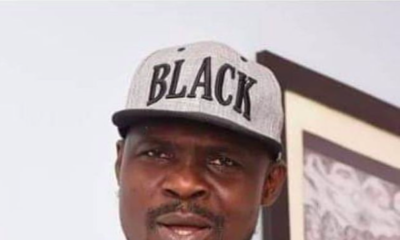Features
Share Anonymous: Break the Silence & Fight to End Sexual Violence
 Sexual violence is a crime that exists in the shadows, because talking about it makes people feel uncomfortable. Survivors are discouraged from talking about it because to say you are a rape or abuse survivor is to say you were a victim, is to open yourself up to blame, is to feel ashamed.
Sexual violence is a crime that exists in the shadows, because talking about it makes people feel uncomfortable. Survivors are discouraged from talking about it because to say you are a rape or abuse survivor is to say you were a victim, is to open yourself up to blame, is to feel ashamed.
It is estimated that 29% of rape victims tell no-one, not even close friends or family about their ordeal. Rape is a crime that flourishes in silence. Silence makes the epidemic seem rare. And silence further isolates the victims, and in so doing encourages rapists.
Most perpetrators don’t want to get caught. They know that only 15% of rapes will be reported to the police; they know further that only 18% of those will be prosecuted, and only 7% of reported rapes will be convicted. In order to escape accountability for his crimes, the perpetrator will do everything in his power to promote forgetting. Secrecy and silence are his first line of defence. If secrecy fails, he then attacks the credibility of his victim. If he cannot silence the individual completely, s/he tries to make sure that no one listens. The more powerful the perpetrator, the greater their prerogative to name and define reality, and the more completely their arguments prevail.
In the case of abuse, many abused children cling to the hope that growing up will bring escape and freedom; but, the personality formed in the environment of sexual exploitation is not well adapted to adult life. The survivor is then left with fundamental problems in basic trust, autonomy, and initiative. S/he approaches the task of early adulthood – establishing independence and intimacy, burdened by major impairments in self-care, in discernment and in memory, in identity, and in the capacity to form stable and lasting relationships. At the end they are still prisoners of their childhood; attempting to create a new life, they often reencounter the trauma.
In a 2013 poll of 585 randomly selected adults from six Nigerian geopolitical zones by NOI Polls, 34% answered ‘What do you think is the most prevalent cause of rape in the society?’ with ‘indecent dressing’. When we suggest victims can stop rape, and then go a step further to blame their trauma on what they wore, on the fact that they were drinking, on their conduct, etc. We also (however unintentionally) imply that rape is an inevitable aspect of life, rather than an action deliberately carried out by a perpetrator. As long as we as a society continue to belittle and dismiss victims’ accounts, disbelieve and question their stories, and blame them for their own assaults, we play right into the hands of those who silence victims by asking: who would believe you anyway?
We have to bring the discussion of rape out of the shadows. Yes, it’s uncomfortable to talk about it. It’s uncomfortable to realise that it doesn’t matter what time of day it is, what you’re wearing, where you are – you can be raped anytime, anywhere. It’s uncomfortable to realise that rapists aren’t some group of disfigured monsters who hide at the back of trees and jump at an unsuspecting victim, but are regular people on the street, at the coffee shop, at work, at church, etc. but I assure you, it’s more uncomfortable to be the victim.
I believe that by talking about it, by sharing stories of sexual trauma we bring the issue of sexual violence out of the darkness, and by shining a light on what is happening, we not only provide solace to the many survivors everywhere and empower them with information on all issues surrounding the trauma, but the rest of the society will become more aware of the realities of sexual violence and it’s resultant affect, the stigma that is attached to the incident would decrease and security agencies would be more inclined to convict rapists and support victims.
It is important for each survivor to find their own way to restore a sense of connection with the wider community. The survivors who recover most successfully are those who discover some meaning in their experience that transcends the limits of personal tragedy. Most commonly by joining with others in social action, creating meaning is really important. Connecting with a larger, supportive, and validating community can be most powerfully healing.
Photo Credit: Mimagephotography | Dreamstime





















